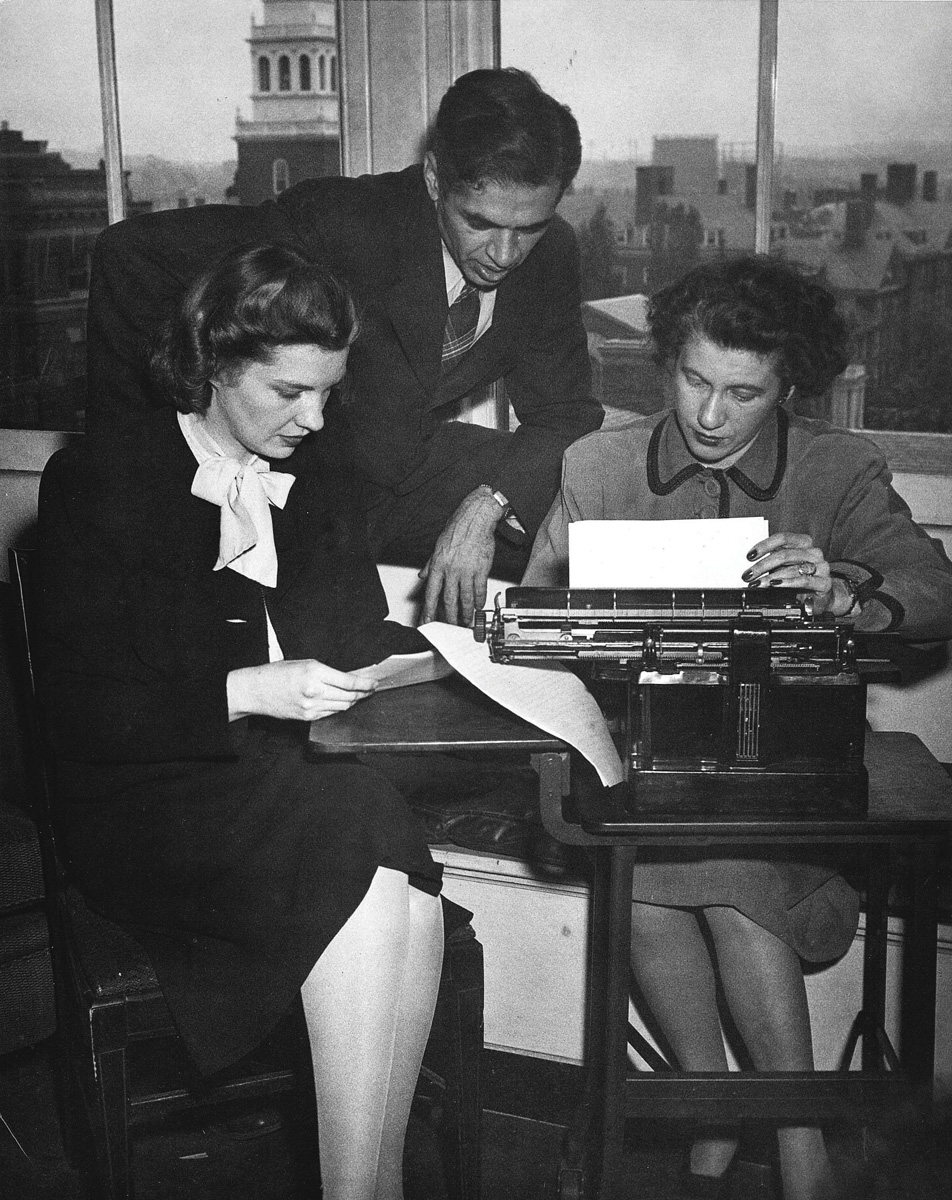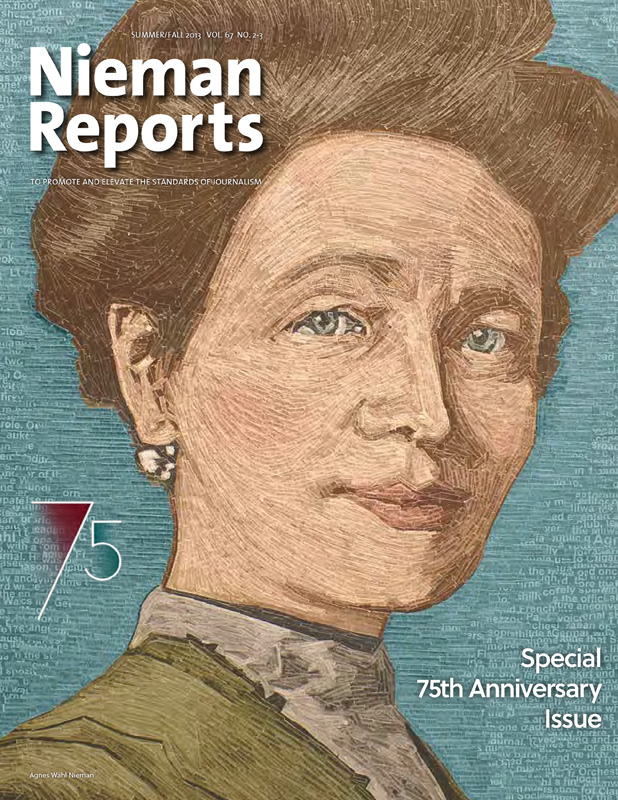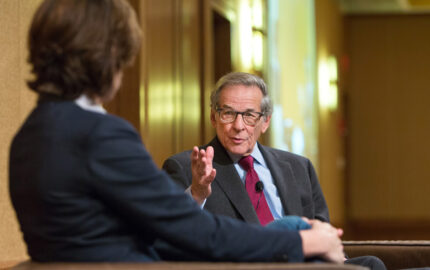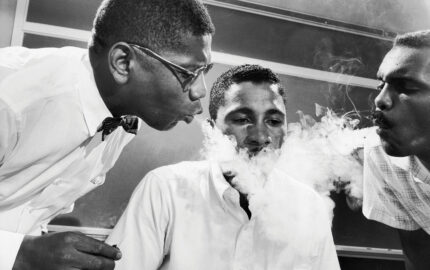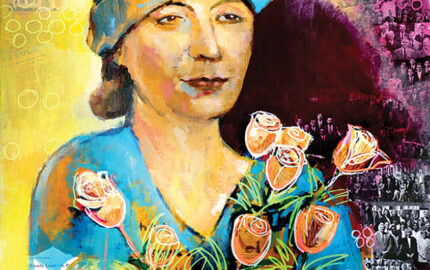One of the first two female Niemans, Leary (1913–2008) covered politics in California for half a century
Learning in the Nieman environment was wider than the campus limits. But the exhilaration of classes exceeded all expectations. The courses were marvelous—especially the theory of government that lay behind what I had experienced in political reporting. I ate it up. It was the last teaching year there for professor [Charles Howard] MacIlwain; his lectures on political theory were a great experience. He would arrive in class with a precarious pyramid of books from which he read appropriate passages, thus illustrating the value of going directly to original sources by reading in English out of Greek and Latin texts. I took a fine course on constitutional law, Professor [Merle] Fainsod’s course on the Soviet revolution, a study of European democracies, and Roscoe Pound’s course “Introduction to the Elements of Common Law” … The atom bomb was the unsettling big news of those years ... As Niemans we had a front row view of future space explorations. We heard a number of great nuclear scientists who previewed for us the coming space age, including the possibilities for peacetime use of the atom. They gave us a first chapter of what would become debates over the dangers of unleashing the atom.
From “The Nieman Fellowships: Reflections from the First Two Women” by Mary Ellen Leary, Nieman Reports, Summer 1979
